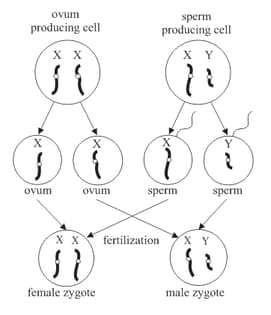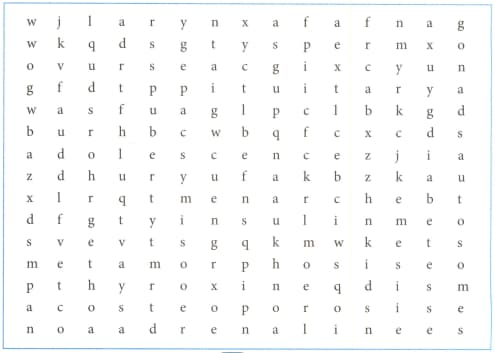NCERT Solutions for Chapter: Reaching the Age of Adolescence, Exercise 1: Exercise
NCERT Science Solutions for Exercise - NCERT Solutions for Chapter: Reaching the Age of Adolescence, Exercise 1: Exercise
Attempt the practice questions on Chapter 10: Reaching the Age of Adolescence, Exercise 1: Exercise with hints and solutions to strengthen your understanding. Science Textbook of Competency Based Questions for Class VIII solutions are prepared by Experienced Embibe Experts.
Questions from NCERT Solutions for Chapter: Reaching the Age of Adolescence, Exercise 1: Exercise with Hints & Solutions
In which body part of a woman does a fertilised ovum get embedded?
An ovum contains one X chromosome. A sperm contains an X or a Y chromosome. A sperm can fertilise an ovum to produce two different zygotes.

Which of these statements is supported by the picture?
What is the legal age for marriage in India?
Diabetes is a condition in which the blood sugar level of a person rises above the normal level.
The table below shows the average range of blood sugar levels at fasting.

Doctors prescribe insulin injections for patients with high blood sugar levels. However, glucagon is injected in an emergency if the blood sugar level of a person drops too low.
Under what conditions of blood sugar level is glucagon likely to be injected?Complete the table given below.
| Puberty changes | Male | female |
| Voice change | ||
| Change in body shape | ||
| Sex organs development | ||
| Hair growth |
Search for the following in the word search puzzle given below.
- Period of transition from childhood to adulthood
- Reaching the age of sexual maturity.
- Gland which releases the growth hormone.
- Disease caused due to deficiency of a pancreatic hormone.
- Reproductive organs
- This hormone controls the metabolic rate.
- Voice box.
- Disease caused by deficiency of calcium and vitamin D.
- Onset of puberty in females.
- Transition of tadpole into a frog.
- Stress regulating hormone.
- Male gamete.
- Chromosomes other than the sex chromosomes.
- Hormone produced by the pancreas.

Differentiate between endocrine gland and exocrine gland.
Differentiate between exocrine and endocrine glands.
